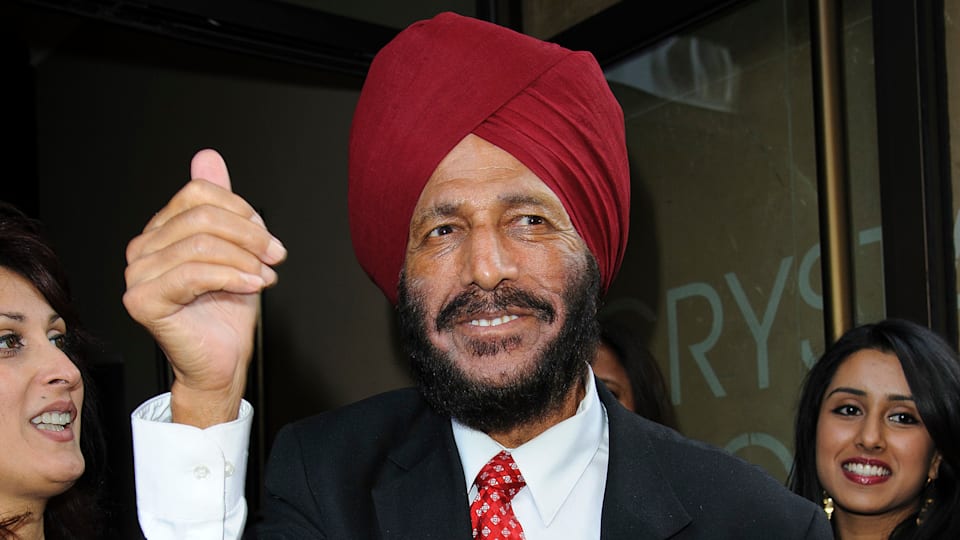Milkha Singh records: Rome history only a small page in Flying Sikh’s folklore
Milkha Singh, who finished fourth in the Rome 1960 Olympics, was a sensation at the Asian and Commonwealth Games. His national records stood for over four decades.

For a generation or two gone by, the late Milkha Singh was one of the biggest names in Indian sport and the country’s first track and field superstar.
Milkha Singh’s finest moment, inarguably, was when he finished fourth in the 400 metres final at the 1960 Olympic Games. A pacing error cost him the bronze by a whisker.
It would have been the perfect reward for someone who began his career with cross country races in the army. Milkha Singh represented India as a raw talent at the 1956 Olympics and had set national records in the 200m and 400m events in the years to follow.
However, Milkha Singh was a legend for reasons more than what he did at the Rome Olympics.
Ruling the Asian roost
Milkha Singh was always known as an extremely committed athlete and his single-minded focus was evident in his 200m and 400m gold medals at the 1958 Asian Games in Tokyo.
The story goes that Milkha approached USA’s Charles Jenkins, the 400m and 4x400m relay gold-medallist at Melbourne 1956, after his events and asked for his training routine, which the American was generous enough to share.
The then 27-year-old Milkha Singh religiously followed Jenkins’ routine for the next two years and it paid off. Milkha set national records ahead of the 1958 Asian Games.
Milkha Singh was in good form in his pet event, the 400m, where he won the gold medal in 47 seconds, almost two seconds faster than silver-medallist Pablo Somblingo.
The second gold was even more special though. In the 200m, Milkha Singh’s main rival was Pakistan’s Abdul Khaliq, who had won the 100m gold with a new Asian Games record, and was widely acknowledged as the best Asian sprinter.
Milkha, though, was in the form of his life. He ran the final in 21.6 seconds, setting a new Asian Games record in the process, and fell at the finish line after pulling a muscle in his leg.
It had granted him victory by 0.1 seconds and established him as an athlete to look out for.
History at the Commonwealth Games
A month after his twin gold-winning efforts at the Asian Games, the ‘Flying Sikh’ would provide one of the most memorable moments in Indian athletics till date.
Though the Asian feat was impressive, the Commonwealth Games, known as the ‘Empire Games’ in those days, would prove to be the real test as it welcomed some of the best athletes from across the world.
Even Milkha Singh himself was unconvinced. “I was not sure I could win a gold at the Commonwealth Games. I never had that kind of faith because I was competing with world record holder (Malcolm) Spence of South Africa. He was the best runner at the time in 400m,” he told The Times of India years later.
However, the Indian sprinter was given a smart race strategy by American coach Dr Arthur Howard, who had noticed that Spence relied on beating his rivals in the final stretch, and instructed his ward to go all out for the entire race.
It worked as Milkha Singh surged ahead in the outermost lane of the 440-yard race and his South African rival, intent on catching up, was unable to find his pace on the home stretch.
To top it off, the Indian sprinter had also set a new 400m national record of 46.6 seconds.
The moment was euphoric, as it made him the first Indian to clinch a Commonwealth Games gold in track and field events.
In fact, the Milkha Singh record stood for 52 years, only being matched by discus thrower Krishna Poonia at the 2010 Commonwealth Games, and even then, the legend was the only Indian male to achieve the feat, until Vikas Gowda joined him in 2014.
The gold was celebrated with much pomp back home and then Prime Minister Jawaharlal Nehru even declared the following day a public holiday on Milkha Singh’s request.
Another Asian double
After the best year of his career in 1958, Milkha Singh won several European events in 1959, and was peaking steadily for the 1960 Olympics, an event where he set a new 400m national record of 45.73 seconds and which became his identity in the decades to come.
It also spurred interest from the entertainment industry and his life story was showcased on the silver screen by director Rakeysh Omprakash Mehra in the 2013 Bollywood biopic ‘Bhaag Milkha Bhaag’, which opened with a shot of Rome 1960.
Two years on from the heartbreak though, Milkha Singh showed his desire and commitment to the sport once again as he won two more gold medals at the 1962 Asian Games in Jakarta.
He was up against compatriot and rising star Makhan Singh, who had beaten him to gold in the national championships that year.
“If there is one person I feared on the track, it was Makhan. He was a superb athlete, who brought the best in me,” Milkha Singh said much later.
However, on the day of the 400m final at the Asian Games, the Indian legend retained his Games crown, beating his younger colleague to gold by half-a-second.
The duo then teamed up in the 4x400m relay final, and along with Daljit Singh and Jagdish Singh, won it in a then-Asian Games record time of 3:10.2, adding a fourth Asian Games gold to Milkha’s collection.
Milkha Singh's personal best in the 4x400m relay, however, was clocked at the Tokyo 1964 Olympics. He combined with Makhan Singh, Amrit Pal and Ajmer Singh to clock 3:08.8s, which the quartet clocked in the heats.
